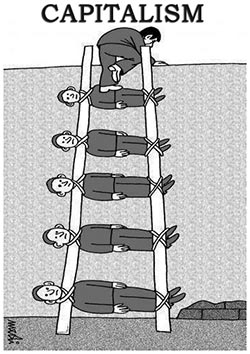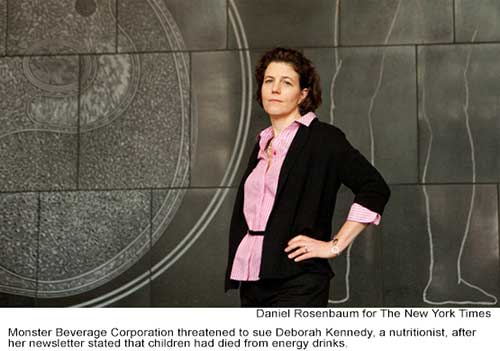The American Made H7N9 Flu
Chinese colonel says latest bird flu virus is U.S. biological weapon

- BY Bill Gertz - April 9, 2013 - Associated Press
A Chinese Air Force officer on Saturday accused the U.S. government of creating the new strain of bird flu now afflicting parts of China as a biological warfare attack.
People’s Liberation Army Sr. Col. Dai Xu said the United States released the H7N9 bird flu virus into China in an act of biological warfare, according to a posting on his blog on Saturday.
The charge was first reported in the state-run Guangzhou newspaper Southern Metropolis Daily and then picked up by several news outlets in Asia.
State Department spokesman Jason Rebholz dismissed the claim. “There is absolutely no truth to these allegations,” he told the Washington Free Beacon.
Seven deaths from the bird flu outbreak were reported as of Tuesday in state-run Chinese media. As many as 24 people reportedly were infected by the disease in Shanghai, Jiangsu, Zhejiang, and Anhui.
Chinese authorities are trying to calm public fears of a major epidemic, claiming there is no evidence the virus can be transmitted between humans.
The government also is claiming that the outbreak is not related to the recent discovery of thousands of dead pigs floating in a river in China.
The accusation of U.S. biological warfare against China comes as the Pentagon is seeking closer military relations with China. Army Gen. Martin Dempsey, chairman of the Joint Chiefs of Staff, is set to travel to China for talks with Chinese military leaders later this month.
Dai is a military strategist who in the past has been outspoken in seeking to foment conflict between China and the United States. He told the Global Times in August that China should go to war over U.S. support for Japan’s claims to the disputed Senkaku Islands.
Writing on Sina Weibo, a Chinese microblogging site akin to Twitter, Dai stated that the new bird flu strain was designed as a biological weapon similar to severe acute respiratory syndrome (SARS), which he also claimed was developed as a U.S. bio-weapon, that affected the country in 2003.
According to Dai’s posting, the new flu outbreak should not be a cause for concern. “The national leadership should not pay too much attention to it,” the PLA lecturer at the National Defense University wrote. “Or else, it’ll be like in 2003 with SARS!”
“At that time, America was fighting in Iraq and feared that China would take advantage of the opportunity to take other actions,” he said. “This is why they used bio-psychological weapons against China. All of China fell into turmoil and that was exactly what the United States wanted. Now, the United States is using the same old trick. China should have learned its lesson and should calmly deal with the problem.”
Dai said that even if “a few may die” from the flu outbreak, it will not equal one-thousandth of the deaths caused by vehicle accidents in China.
Dai in the past has called for China to punish the United States for U.S. arms sales to rival Taiwan, by selling arms to U.S. enemies. “China recognizes that a few perfunctory protests will not have any effect,” Dai said in 2010. “China can’t directly sanction American arms companies since they did not do business with China … but China can sanction companies that are doing business with China directly, like Boeing or General Electric.”
Dai also has said the United States has used crises with North Korea and offers of cooperation on the issue as a plot to drive a wedge between Beijing and its fraternal communist ally.
Dai also has said U.S. efforts to counter Chinese espionage and intelligence-gathering were part of a U.S. “plot theory” of “western countries threatening others by [releasing] information gained through spying in order to damage the reputations of other countries.”
A State Department official said China notified the World Health Organization (WHO) on March 31 about its first detected human cases of H7N9 infection. Fourteen cases were confirmed by the WHO by April 5, of which six were fatal. The organization said there is no evidence of human-to-human transmission.
“U.S. Embassy Beijing and U.S. Consulate Shanghai are monitoring the situation, working closely with counterparts at the U.S. Centers for Disease Control, and the Beijing and Shanghai municipal governments,” the official said.
The colonel’s accusation provoked a widespread response on Chinese websites. One post in reaction joked that Dai’s comment about auto deaths must mean that the United States and Germany are responsible for a conspiracy to produce cars, according to a report in Hong Kong’s South China Morning Post.
Luo Changping, deputy editor of Caijing, said most PLA soldiers would not support Dai’s comments and he urged the colonel to resign and apologize to those who have died from the current bird flu outbreak.
A defiant Dai then said in a new posting Sunday that “it is common knowledge that a group of people in China have been injected with mental toxin by the United States.”
“Now, a group of fake American devils are attacking me,” he wrote in another post. “I will not retreat even half a step.”
Analysts say the colonel’s remarks are a reflection of the growing xenophobic atmosphere within the Chinese military that views the United States as its main enemy.
Former State Department intelligence analyst John Tkacik said China’s military was largely to blame for mishandling the 2003 outbreak of SARS. Tkacik said there was speculation when the epidemic began that “the PLA suspects SARS had emanated from its own biological laboratories and was all the more eager to keep it secret.” China is known to have a covert biological arms program.
“Col. Dai Xu is a shameless liar when he accuses the United States of using bio weapons,” Tkacik told the Free Beacon. “He’s probably motivated by a desire to exculpate the PLA for their mishandling of the epidemic—no doubt most Chinese have happily forgotten the episode—as much as by a cynical xenophobia. But, that’s what passes for deep strategic thought at China’s National Defense University these days.”
The Pentagon has been trying with varying success to develop closer ties to the Chinese military as part of a strategy aimed at building trust. However, China’s military leaders believe the U.S. offers of closer ties are a ruse designed to contain China’s growing military buildup.
Defense Secretary Chuck Hagel spoke by phone with China’s Defense Minister Gen. Chang Wanquan on April 2. Chang is the No. 4 defense official after Chinese President Xi Jinping and two other generals who run the Central Military Commission, the Communist Party’s ultimate power organ.
“The leaders both expressed their intention to work together to continue to build a military-to-military relationship that serves the vision of both President Obama and President Xi,” Pentagon press secretary George Little said in a statement after the call.
“The secretary discussed the importance of focusing on areas of sustained dialogue, practical areas of cooperation, and risk reducing measures,” he said.
U.S. ties with China are strained due to China’s reluctance to rein in neighboring North Korea.
China provides North Korea with large amounts of fuel oil and other goods. However, Beijing has not taken steps to pressure Pyongyang using its economic leverage during the ongoing crisis.
The flu has lit up China’s thriving Internet, according to analysts. Over 945,600 microblog postings addressed the flu between April 8 and 9. Since the outbreak began some seven days ago, between 1.3 million and 3 million postings were put online on outlets including Sina Weibo and QQ Weibo.
Tens of thousands of users expressed doubts about the official Shanghai municipal government’s denial of any link between the dead pigs found floating last month in the region’s Huangpu River.
The proximity to the initial outbreak in Shanghai and the river has led to speculation that the pig deaths may have been linked to the flu virus jumping from animals to humans.
That speculation was fueled by reports that one of the victims of the flu was a pig butcher.
The avian flu strain is similar to an earlier outbreak with a significant difference: The current strain does not kill the birds it infects, making it more difficult to identify infected poultry.
The Shanghai government waited 20 days before announcing the first H7N9 infection on March 31.
Global Capitalism - By Richard Wolff
Published: June 28, 2017
 Economist, Richard Wolff is a Professor of Economics Emeritus at the University of Massachusetts, Amherst, and Visiting Professor at the New School graduate program in International Affairs in New York.
Economist, Richard Wolff is a Professor of Economics Emeritus at the University of Massachusetts, Amherst, and Visiting Professor at the New School graduate program in International Affairs in New York.
Wolff’s work challenges the conventional wisdom that capitalism is the ideal framework for the political economy. More recently, he has concentrated on analyzing the causes and alternative solutions to the global economic crisis. In 2010, Wolff put his economic theory into action, and co-founded Democracy at Work, a project that aims to build a social movement and society whose workplace is more equitable, sustainable, and democratic.
Over the years, Wolff has written extensively and published many books including Democracy at Work: A Cure for Capitalism, Occupy the Economy: Challenging Capitalism, and Capitalism Hits the Fan: The Global Economic Meltdown and What to Do About It, which was also made into a DVD.
Wolff’s bold and persuasive economic ideas have helped him establish a strong media presence. He writes regularly for The Guardian and Truthout.org, and has been interviewed by Amy Goodman’s Democracy Now!, Al Jazeera English, and National Public Radio. He is also a frequent lecturer at colleges and universities across the country.
Wolff earned his PhD in Economics and MA in History from Yale University, an MA in Economics from Stanford, and a BA in History from Harvard. He lives in New York with his wife, Dr. Harriet Fraad, a psychotherapist.
Understanding Marxism: Q&A with Richard D. Wolff
Published: June 13, 2019
Understanding Marxism Q&A with Richard Wolff, Prof. Wolff talks about the impetus for the book and why Marxism is appealing to a growing audience.
Prof. Antony Davies: 10 Myths About Government Debt
Published: October 16, 2017
Professor Antony Davies explains the many miss-understandings about Government Debt. Myth 1 is that the government owes “only” $20 trillion. (In reality, it’s much more.) But luckily, Myth 10 is that there’s no way to fix this problem…
Myth number one, the government owes $20 trillion. How much is $20 trillion? Suppose you go to Germany, and in Germany, you go to every town. In every town, you visit every store. In every store, you look at every shelf and grab everything that is for sale. The amount of money you spend will not be $20 trillion. If you go to Germany and then to France and you go to every town, and within every town, you go to every store. In every store, you look on every shelf and you buy everything. You still will not have spent $20 trillion. You can go to England and while you’re there, you can go to the North Countries and buy everything that’s for sale, and you still will not have spent $20 trillion. In fact, to spend $20 trillion, you have to go to every country in Europe, visit every town, in every town, go to every store. In every store, look on every shelf and buy everything. And then you will have spent about $20 trillion.
But the myth is that this is how much money the government owes. It turns out that there’s more, called unfunded obligations. Unfunded obligations is money the Federal Government has promised but which it does not and will not have the money to pay. Largely, this consists of promises of retirement and medical benefits. If you would take the present value of all the future promises of retirement and medical benefits the government has made and subtract from that the amount of money that’s in the government’s Social Security and Medicare trust funds, and then subtract from that the amount of money the Federal Government anticipates collecting under the current law from future Social Security and Medicare taxes, you will still have an amount of money left over that the government does not have.
In a New Aisle, Deadly Energy Drinks Sidestep Some Rules

- By BARRY MEIER - The New York Times - March 19, 2013
Fans of Monster Energy, the popular high-caffeine energy drink, may not notice the change: its ingredients will be the same and its familiar label bearing a green, clawlike monogram will change only slightly. But the drink’s maker has decided after a decade of selling it as a dietary supplement to market it as a beverage, a switch that will bring significant changes in how it is regulated.
 Among them: Monster Beverage, the nation’s biggest seller of energy drinks, will no longer be required to tell federal regulators about reports potentially linking its products to deaths and injuries.
Among them: Monster Beverage, the nation’s biggest seller of energy drinks, will no longer be required to tell federal regulators about reports potentially linking its products to deaths and injuries.
The company’s recent move, which follows a similar regulatory makeover by another brand, Rockstar Energy, comes amid intensifying scrutiny of energy drink safety. On Tuesday, a group of 18 doctors and researchers sent a letter to the Food and Drug Administration urging it to take action to protect adolescents and children from the possible risks of high caffeine consumption. “There is evidence in the published scientific literature that the caffeine levels in energy drinks pose serious potential health risks,” the researchers wrote.
Monster Beverage’s new cans will also disclose caffeine content for the first time. A 16-ounce can of Monster’s most popular energy drinks will contain 140 to 160 milligrams of caffeine, compared with about 330 milligrams in a 16-ounce cup of Starbucks coffee.
The company is fighting back against critics on several fronts. This month, it held a news conference to dispute accusations in a lawsuit that the death of a 14-year-old girl was linked to high caffeine levels in Monster Energy. Separately, it threatened to sue a nutritionist who publishes a newsletter for elementary schools for statements that it said were defamatory.
The changes by Monster and Rockstar demonstrate the degree to which energy drink manufacturers can decide which rules to follow.
“We don’t have energy drinks defined by any regulation,” Daniel Fabricant, director of the F.D.A.’s dietary supplement division, acknowledged in an interview in October.
For a decade, Monster sold its products as dietary supplements, apparently as part of a strategy to convince consumers that they were different from beverages. But the company, like its competitors, has run into a spate of bad news, including the disclosure in October that the F.D.A. had received reports in recent years that mentioned its drinks in connection with deaths and injuries.
Since then, the F.D.A. has received three more death reports and 14 injury reports that cite Monster energy drinks, an F.D.A. spokeswoman, Tamara Ward, said in an e-mail. In recent months, the agency has also received added reports about other energy products; since October, for example, it has received 38 reports that cite the popular energy “shot” 5-Hour Energy, including five involving a death.
The mention of a product in an incident report filed with the F.D.A. does not mean the product played a role in a death or injury, and such reports may provide few details. Monster Beverage and the maker of 5-Hour Energy have insisted that their products are safe and unrelated to the reported episodes.
A spokesman for Monster, Michael Sitrick, said the company had decided to market its products as beverages for several reasons. One was to stop what he described as “misguided criticism” that the company was selling its energy drinks as dietary supplements because of the belief that such products were more lightly regulated than beverages. Another consideration, he said, was that consumers can use government-subsidized food stamps to buy beverages.
“Monster Energy drinks could equally satisfy the regulatory requirements” for either category, Mr. Sitrick said.
An executive vice president at Rockstar, Joseph Cannata, said the company had made the change because consumers found food labels easier to read. In January, all production of Rockstar energy drinks switched to those labels, he said.
Rockstar had previously disclosed its caffeine content.
A lawyer who represents supplement makers, Justin J. Prochnow, said companies like Monster and Rockstar might have had another incentive. Over the last two years, the F.D.A. has intensified its scrutiny of the supplement industry’s manufacturing practices, driving up production costs.
As beverage producers, Monster and Rockstar will face some reporting mandates, including some that are stiffer than the mandates for supplement makers. Such companies are required to notify the government when they think a product could cause injury, a rule intended mainly to limit the distribution of tainted food. In addition, they are required to maintain scientific data supporting the safety of any ingredients they use that are not already cleared by the government. They can also voluntarily notify the F.D.A. about adverse events possibly affecting individual consumers, a step Monster Beverage said it planned to take.
Mr. Sitrick said Monster’s move to list caffeine content followed its decision to join the American Beverage Association, an industry trade group, which urges member companies to make such disclosures. He estimated that half of the company’s products would list caffeine content by April, and 90 percent by May.
In a recent filing with the Securities and Exchange Commission, Monster Beverage, which is based in Corona, Calif., said that negative media reports about energy drinks had created “softness” in demand. Its stock, which traded for $83.96 last spring, closed at $49.72 on Tuesday, a decrease of more than 40 percent. Rockstar is privately held.
The energy drink industry also faces several investigations from federal and state officials into claims that its products provide benefits lacking in other caffeine sources, like coffee. Researchers say there is little evidence to support these claims.
At a recent news conference, Monster Beverage denied accusations that it was responsible for the 2011 death of a Maryland teenager who had consumed two 24-ounce cans of Monster Energy. The company said that tests were never conducted on the 14-year-old, Anais Fournier, to determine caffeine levels in her blood.
A lawyer representing her family, Kevin Goldberg, said a state medical examiner had found that the teenager, who had an underlying heart condition, died of a cardiac arrhythmia caused by caffeine toxicity. A spokesman for the chief medical examiner’s office in Baltimore declined to comment, citing continuing litigation.
Monster Beverage also claimed recently that the March issue of a newsletter sent to elementary school students and their parents contained defamatory statements that had “materially damaged Monster and its well-known brand.” It objected to several statements in the newsletter, Build Healthy Kids, including one that said children had died from energy drinks and should “never drink” them.
In a letter dated March 4, the company demanded that Deborah Kennedy, a nutritionist who publishes the newsletter, retract and correct the statements within five days or face a lawsuit.
Ms. Kennedy, who lives in Connecticut, said in an interview that she was stunned by the threat, in part because the newsletter never mentioned Monster Energy or any other product by name, but focused instead on the need for children to cut down on sugar-laden beverages.
In response, she called on one of Connecticut’s United States senators, Richard Blumenthal, who is a critic of the energy drink industry. Mr. Blumenthal’s office contacted Monster, which agreed to withhold legal action pending a meeting with Ms. Kennedy.
Ms. Kennedy, who holds a doctorate in nutrition, said she thought the audience for her newsletter, children from kindergarten through fifth grade, should not consume energy drinks. “They are going after me for reaching that segment, and it boggles my mind,” she said.
Mr. Sitrick, the Monster spokesman, said that the 7-year-old son of a Monster employee had received the newsletter at his school and was upset by it. The boy showed it to his father, who brought it to the attention of a company lawyer.
“No child, much less a 7-year-old, should be falsely informed that his or her father’s employer is a child killer, especially since there are no facts to support the allegation,” Mr. Sitrick said. He added that Ms. Kennedy had yet to meet with a lawyer for Monster.
Last week, Senator Blumenthal and two other Democratic lawmakers, Senator Richard J. Durbin of Illinois and Representative Edward J. Markey of Massachusetts, sent a letter to Monster Beverage urging it to apologize for the tone of its letter to Ms. Kennedy and asking whether the company had threatened others with lawsuits.
Mr. Sitrick said the company was still reviewing the letter but continued to believe that Ms. Kennedy’s statements were defamatory.
Vaccines: Armed and Dangerous - Gary Null Vaccine Nation
Vaccines: Armed and Dangerous - Jon Rappaport from NoMoreFakeNews airs dirty secrets of the vaccine industry -- February 2012
Join the Health Ranger as he interviews Jon Rappaport, co-creator of and brilliant mind behind the new course called "Vaccines: Armed and Dangerous." This astonishing program will teach you new, shocking facts about vaccines that you never could have imagined.
"Vaccines: Armed and Dangerous" teaches us what the REAL facts about vaccines are and what is actually propaganda,stories and lies. Learn more about this extraordinary collection of information from a man who has spent the last 15 to 20 years researching the truth about vaccines.
42 U.S. Code § 300aa–22 - Standards of Responsibility
The term “vaccine-related injury or death” means an illness, injury, condition, or death associated with one or more of the vaccines set forth in the Vaccine Injury Table, except that the term does not include an illness, injury, condition, or death associated with an adulterant or contaminant intentionally added to such a vaccine.
A manufacturer who produces and sells a defective vaccine that creates a risk of significant injury to the recipient is liable to any person injured by that defect under the principles stated in section 402A of the Restatement of Torts 2d. This is thought to be the law in every American jurisdiction.
Included in this interview:
* The mythology of so-called flu fatality numbers
* True number of people harmed or killed by vaccines
* How the CDC and vaccine industry hoax the public about factious pandemics (including swine flu) with scare tactics
"Are Vaccines Safe?" Mary Tocco http://www.youtube.co...
"The True Weapons of Mass Destruction" Dr Carley http://www.youtube.co...
"Vaccines: The Toxic Truth" http://www.youtube.co...
"How Vaccines Hurt You" -- Dr. Russell Blaylock on Alex Jones http://www.youtube.co...
Robert F Kennedy Jr on the Vaccine Autism Coverup http://www.youtube.co...
"Mercury, Autism & The Global Vaccine Agenda" Dr David Ayoub M.D. http://www.youtube.co...
"Vaccines , The Risks, The Benefits, The Choices" Sherry Tenpenny DO http://www.youtube.co...
"What's coming through that needle" http://www.youtube.co...
Robert F Kennedy jr http://www.youtube.co...
Truth about vaccines Ted Koren DC http://www.youtube.co...
"Lethal Injection: The Story of Vaccinations" http://www.youtube.co...
"Vaccination, The Hidden Truth" http://www.youtube.co...
"Special Report: Dangerous Inoculations" http://www.youtube.co...
"Mercury, Autism and the Global Vaccine Agenda" http://www.youtube.co...
Vaccines safety: A Crime Against Humanity" http://www.youtube.co...
"Dangers of Vaccines" Dr Tenpenny http://www.youtube.co...


